Learning Professional
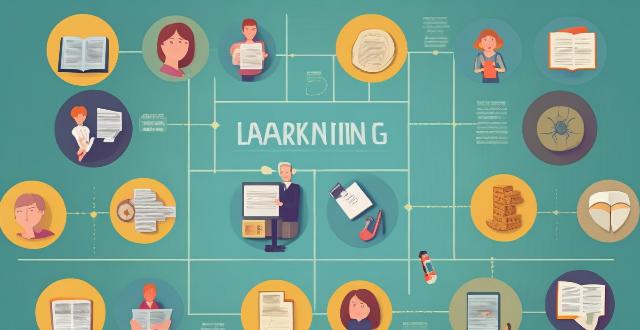
What are the benefits of lifelong learning ?
Lifelong learning, a process of continuous and voluntary learning throughout one's lifespan, offers numerous benefits that positively impact an individual's personal and professional life. These include improved cognitive abilities, increased self-esteem and confidence, personal fulfillment and satisfaction, enhanced career opportunities, higher earning potential, greater professional network, economic growth, social inclusion and cohesion, and environmental sustainability. By embracing the concept of lifelong learning, individuals can lead richer, more fulfilling lives while contributing positively to society as a whole.

Are there any online learning resources specifically designed for professionals in the healthcare industry ?
Yes, there are numerous online learning resources available that are specifically designed for professionals in the healthcare industry. These resources offer a wide range of courses, training programs, and certifications that cater to the unique needs and requirements of healthcare professionals. Some of these resources include Coursera, edX, Udemy, LinkedIn Learning, Khan Academy, MedEd, FutureLearn, Healthcare Training Institute, Harvard Medical School Online Learning, and Nurse.com.
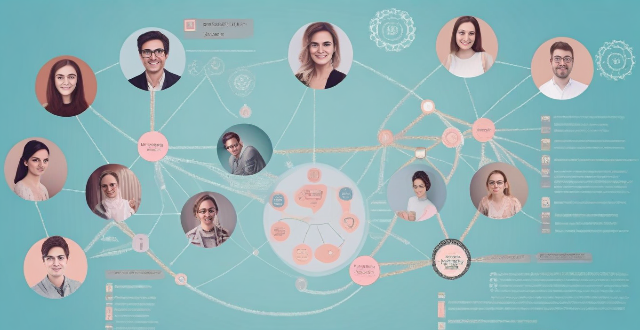
How can women network effectively to expand their professional opportunities ?
Effective networking strategies for women include identifying goals, leveraging social media platforms, attending industry events, seeking mentorship, volunteering or joining professional associations, practicing active listening, and following up and staying connected. These steps help expand professional opportunities and foster meaningful connections.
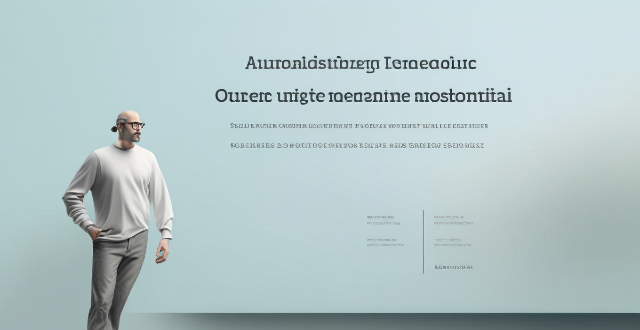
How can employers encourage and support lifelong learning among employees ?
Employers can support lifelong learning by offering resources, encouraging participation in training programs, providing opportunities for career development, and creating a collaborative learning environment.

What is lifelong learning and why is it important ?
Lifelong learning is the continuous process of acquiring new knowledge, skills, and attitudes throughout one's life. It is important for personal development, professional growth, social contribution, economic benefits, health and well-being, and global citizenship. To embrace lifelong learning, individuals can set learning goals, create a learning plan, seek out opportunities, stay curious, reflect on their learning, and share their knowledge with others.

Can I install fiber optic broadband myself or do I need a professional ?
Fiber optic broadband installation is complex, requiring specialized tools and skills. While self-installation can save money and offer flexibility, it carries risks of damage and safety concerns. Professional installation ensures quality, time-saving, and support but can be costly. It's generally recommended to hire a professional for a smooth and reliable installation process.
![How important is education for [insert celebrity name]'s personal and professional growth ?](/images/3nde/ba2ae69b-8180-4ecc-b44b-5004ff476ef3.png)
How important is education for [insert celebrity name]'s personal and professional growth ?
This topic summary delves into the pivotal role of education in shaping the personal and professional growth of [celebrity name]. It underscores how early education laid the groundwork for their character, social skills, and ethical values. Higher education is highlighted as a stepping stone towards specialized knowledge, networking, and career advancement. The commitment to lifelong learning beyond formal education settings is also emphasized, showcasing continuous efforts to stay relevant and adaptable. The discussion concludes by reiterating the transformative impact of education on [celebrity name]'s journey, suggesting its universal significance in fostering personal and professional development.
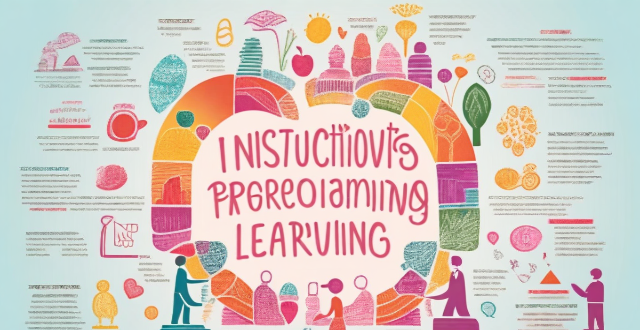
What role do educational institutions play in promoting lifelong learning ?
Educational institutions promote lifelong learning by encouraging a love for learning, providing access to educational resources, offering continuing education opportunities, and fostering collaboration and partnerships.

What steps can women take to build a strong professional network ?
Building a strong professional network is crucial for career growth and advancement. For women, it can be especially important as they often face unique challenges in the workplace. Here are some steps that women can take to build a robust professional network: 1. Attend industry events and conferences. 2. Join professional organizations and associations. 3. Utilize social media and online platforms. 4. Find a mentor or sponsor. 5. Participate in training programs and workshops. 6. Volunteer for committees or boards. 7. Stay in touch with colleagues and alumni.
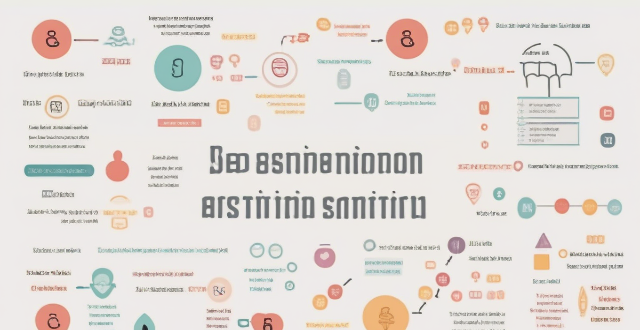
How can I develop a habit of lifelong learning ?
Lifelong learning is crucial for staying relevant and competitive. To develop this habit, set clear goals, create a learning plan, make learning part of your daily routine, embrace challenges, stay curious, connect with others, reflect on your journey, and continuously update your skills.
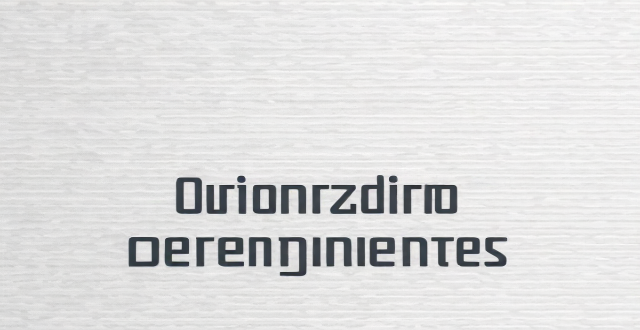
What are the best online learning resources for beginners ?
The text provides a list of online learning resources for beginners, including Khan Academy, Coursera, edX, Udemy, Codecademy, Duolingo, Skillshare, and LinkedIn Learning. Each resource offers courses in various subjects, from computer science to language learning, and many are free or have affordable options available.

How do I start learning golf ?
Golf is a popular sport that can be enjoyed by people of all ages and skill levels. If you're interested in learning how to play golf, here are some steps to help you get started: 1. Understand the basics of golf, including the rules and etiquette. 2. Choose the right equipment, such as a set of beginner-friendly clubs. 3. Take lessons with a PGA professional for personalized instruction. 4. Practice regularly at a driving range, putting green, or chipping area. 5. Play on an actual golf course once you've gained confidence from practicing. 6. Join a golf community to enhance your learning experience and meet other players. 7. Stay patient and have fun while enjoying the process of learning and playing golf.

How does lifelong learning impact career development ?
Lifelong learning is a continuous process of acquiring new knowledge and skills that can significantly impact career development. It enhances skills, adaptability, creativity, personal growth, networking opportunities, and career longevity. By engaging in lifelong learning, individuals can stay relevant in their professions, adapt to changing job requirements, and increase their chances of career success.

In what ways does academic integrity relate to professional ethics ?
**Academic Integrity and Professional Ethics: An Interconnected Relationship** The concepts of academic integrity and professional ethics are fundamentally interconnected, sharing principles like honesty, fairness, responsibility, respect, and courage. Academic integrity lays the groundwork for professional ethics by instilling foundational skills such as critical thinking, research integrity, and ethical decision-making. These skills transition from academia to profession, building reputations for reliability and trustworthiness. Therefore, promoting academic integrity is crucial not only for the academic community but also for the broader professional world.
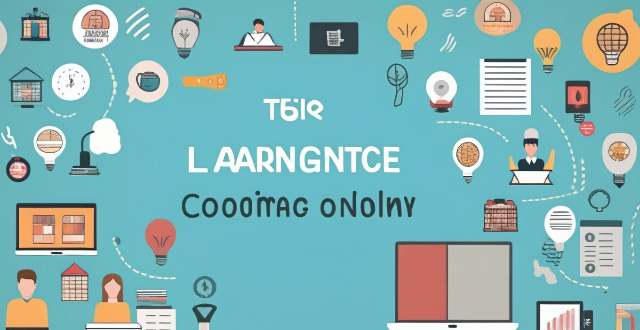
How can lifelong learning contribute to personal growth and development ?
Lifelong learning contributes to personal growth and development by enhancing cognitive abilities, advancing career prospects, providing personal fulfillment, fostering social engagement, promoting adaptability and resilience, and encouraging continuous self-improvement. By engaging in lifelong learning, individuals can maintain mental sharpness, stay relevant in a changing job market, pursue interests and passions, build social connections, become more adaptable to change, and continuously strive for self-improvement.

How can critical thinking training be incorporated into education ?
Incorporating Critical Thinking Training into Education: - Defined as the ability to analyze and evaluate information, critical thinking is crucial for effective decision-making. - Integrating it into education enhances students' learning experiences and readies them for personal and professional growth. - Strategies include curriculum design that integrates critical thinking across subjects and uses real-world applications; teaching methods such as the Socratic Method and inquiry-based learning; assessments that measure these skills; and professional development for educators. - By prioritizing critical thinking in education, students become better equipped for academic success and future careers, developing into engaged, curious, and adaptable learners.
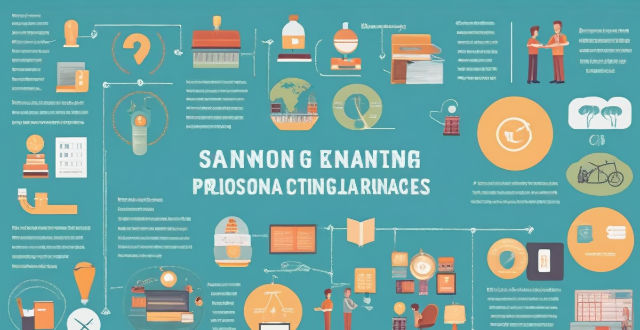
How can I find reliable online learning resources for my subject ?
When searching for online learning resources, it'sWhen searching for online learning resources, it's learning goals and then priorit it's crucial to first identify your learning goals and then prioritize credible sources like academic institutions and professional organizations. Evaluate content quality by checking author credentials and ensuring the information is up-to-date. Utilize reputable online learning platforms and join online communities for recommendations. Look for accredited courses and take advantage of trial periods to assess course quality before committing financially.
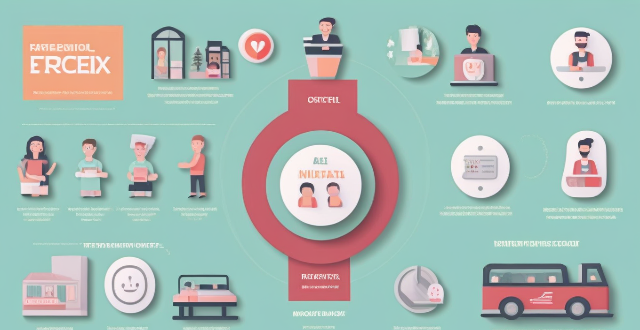
How do celebrities balance their personal and professional lives on social media ?
Balancing personal and professional lives on social media can be challenging for celebrities. Clear boundaries, separating personal and professional accounts, scheduling posts wisely, engaging with followers appropriately, and seeking professional help when needed are effective strategies for maintaining this balance. By following these strategies, celebrities can maintain a healthy balance between their personal and professional lives on social media while still connecting with their fans in meaningful ways.

Can women play professional football ?
**Can Women Play Professional Football?** The topic discusses the possibility and reality of women playing professional football. It starts with a historical perspective, highlighting the early days when women were not allowed to participate in football due to societal norms and gender roles. However, the first recorded women's football match took place in 1895, despite opposition from male-dominated football associations. The development of women's football is also discussed, with the establishment of the Women's World Cup in 1991 marking a significant milestone for the sport. Professional leagues such as the National Women's Soccer League (NWSL) in the United States have provided opportunities for female players to earn a living through football. The skill and talent of female footballers are emphasized, stating that they possess the same level of skill and talent as their male counterparts. Many women have showcased their abilities on the world stage, earning recognition and respect from fans and peers alike. However, the topic also highlights the challenges faced by women in football, such as unequal pay and limited resources compared to men's teams. There is a need for continued advocacy and awareness to ensure that women's football receives the same level of attention and investment as men's football. In conclusion, women can indeed play professional football. They have demonstrated their skills and talents on various platforms, including international competitions like the Women's World Cup. While there is still room for improvement in terms of equality and resources, it is clear that female footballers are capable of competing at the highest level of the sport.

What are the challenges faced by adult learners in the process of lifelong learning ?
The text discusses the challenges faced by adult learners in the process of lifelong learning, including time constraints, lack of motivation, access to resources, technology barriers, and cognitive abilities. It provides solutions to overcome these challenges such as prioritizing time, setting clear goals, exploring resource options, staying informed about technology trends, and adopting effective study strategies. The text emphasizes the importance of lifelong learning for personal and professional development and adapting to a rapidly changing world.
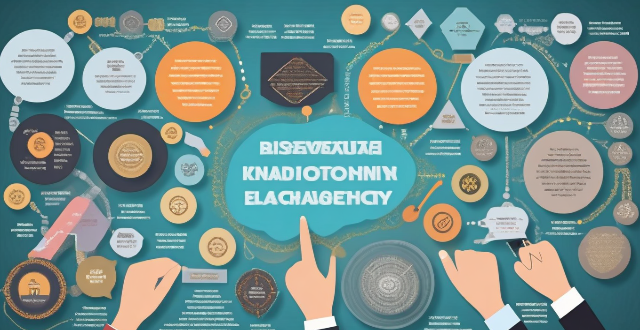
Where can I find comprehensive online learning resources for business management ?
The article discusses various online learning platforms that offer comprehensive resources for business management. These include Coursera, Udemy, edX, Khan Academy, and LinkedIn Learning. The courses provided by these platforms cover a wide range of topics, such as strategy formulation, financial management, human resource management, and marketing. Some of the popular courses mentioned are Introduction to Marketing by Northwestern University on Coursera, Business Finance for Non-Finance Managers on Udemy, and Strategy and Innovation in the New Economy by Stanford University on edX. The article emphasizes that these platforms offer courses suitable for learners of all levels and can help individuals acquire the necessary knowledge and skills to become successful business managers.
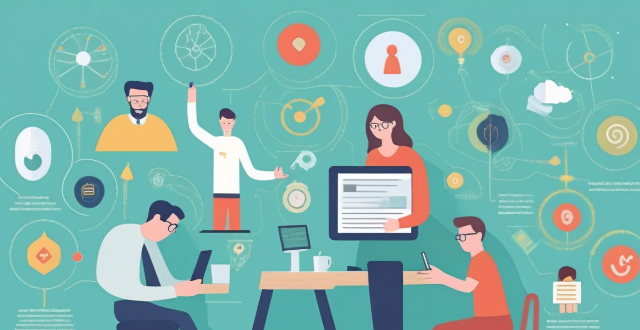
What are the best online learning tools for students ?
Online learning tools have become essential for students in recent years. These tools offer a wide range of courses and resources to help students improve their academic performance and explore new subjects. Some of the best online learning tools for students include Khan Academy, Duolingo, Quizlet, Coursera, EdX, and Udemy. These platforms provide interactive exercises, language-learning courses, study materials, high-quality educational content, and skill-building courses. By utilizing these online learning tools, students can enhance their education and achieve success in their chosen fields.

How can parents and teachers communicate effectively to ensure a positive learning environment for students ?
Effective communication between parents and teachers is crucial in ensuring a positive learning environment for students. Tips include establishing open lines of communication, using active listening skills, being respectful and professional, setting clear expectations and goals, and collaborating on strategies and interventions. By doing so, parents and teachers can work together to support student success.

Can data analytics be used to personalize learning experiences for individual students ?
Data analytics is a powerful tool that can be used to personalize learning experiences for individual students by collecting data related to student performance, preferences and behaviors. This allows educators to tailor instruction to meet the unique needs of each learner. Data analytics can improve student outcomes, provide tailored instructional approaches, and use resources more efficiently. It can also identify student needs, design personalized learning plans and enhance teaching practices. By leveraging the power of data analytics, educators can better understand their students' needs, design effective learning plans, and enhance their teaching practices to promote improved outcomes for all learners.
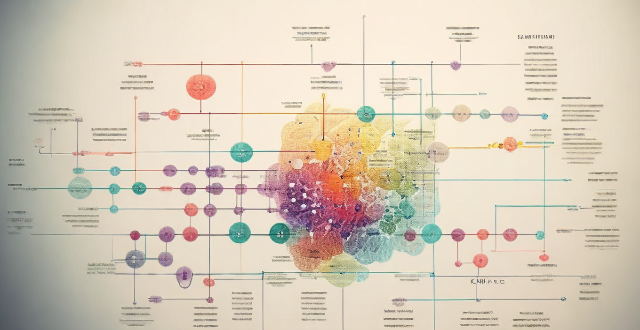
What are some effective strategies for lifelong learning ?
Lifelong learning is crucial for personal growth and adaptability. Effective strategies include setting clear goals, creating a learning plan, leveraging technology, practicing active learning, seeking mentorship, and embracing failure for continuous improvement.
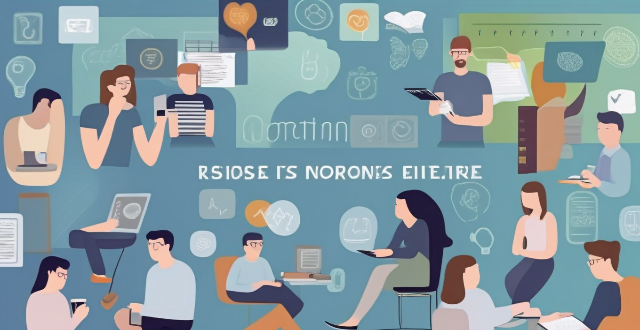
Can you recommend any good online learning resources for language learning ?
Here are some good online learning resources for language learning: Duolingo, Rosetta Stone, Memrise, Babbel, italki, Lingoda, Busuu, Coursera, Edx, and FluentU. These platforms offer courses in various languages and use different approaches to teaching, such as interactive lessons, immersive experiences, flashcards, conversation skills, one-on-one tutoring, and real-world videos.

How does a knowledge framework aid in learning and understanding complex topics ?
The text discusses the importance and benefits of using a knowledge framework to aid in learning and understanding complex topics. A knowledge framework is an organized structure that helps to categorize, relate, and prioritize information, serving as a mental model or conceptual map that guides the learning process. The importance of a knowledge framework includes facilitating organization, enhancing comprehension, promoting deeper analysis, and supporting critical thinking. The benefits of using a knowledge framework include simplifying information overload, building stronger associations, enabling better recall and application, improving memory retention, and facilitating application. The text also discusses the application of a knowledge framework in education and training, research and analysis, and professional settings. Overall, the development and utilization of a knowledge framework is crucial for anyone aiming to master challenging subjects and apply that knowledge effectively.
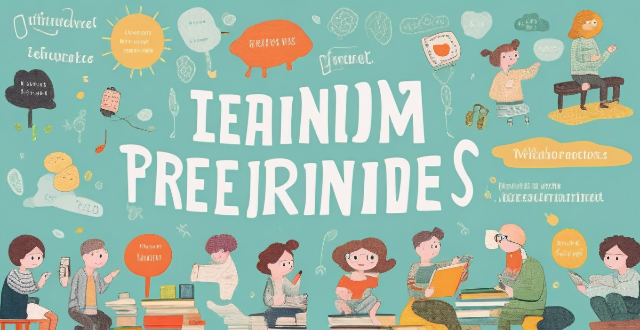
Are there any good online learning resources for language learning ?
Good online learning resources for language learning include Duolingo, Memrise, Rosetta Stone, Babbel, and Busuu. Each platform has its unique features and strengths, such as interactive lessons, memory techniques, immersive experiences, conversational focus, and community support. These resources can help learners achieve fluency in their target language by providing engaging and effective ways to learn vocabulary, grammar, pronunciation, and cultural insights.

What are some benefits of using online learning resources compared to traditional classroom learning ?
Online learning resources offer advantages over traditional classroom learning, including flexibility and convenience, cost savings, personalized learning experiences, exposure to diverse cultures, and development of technology skills.
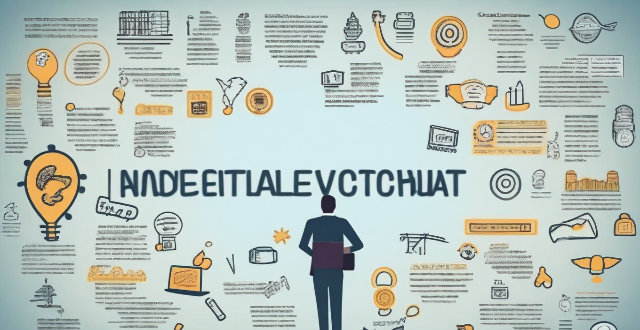
What role do technology and digital learning play in these new education policies ?
The text discusses the integration of technology and digital learning in new education policies, highlighting their benefits such as personalized learning, accessibility, interactivity, collaboration, and real-time feedback. It also outlines key areas of integration, including curriculum development, teacher training, student assessment, administrative functions, and infrastructure development. However, challenges such as equity, privacy and security, teacher readiness, and quality control need to be addressed to fully realize the potential of technology in education.